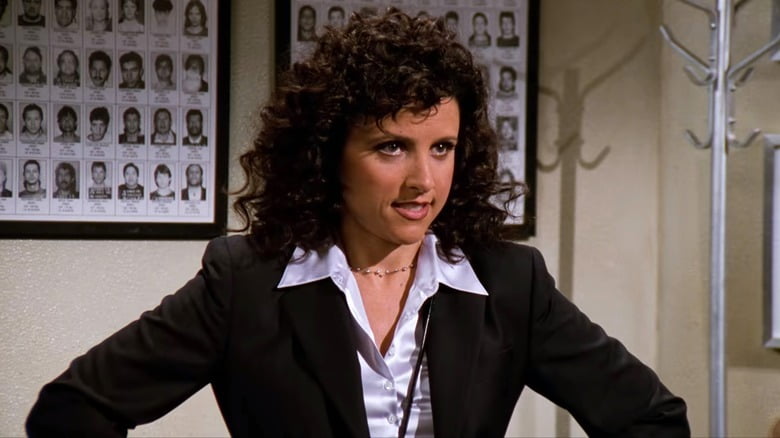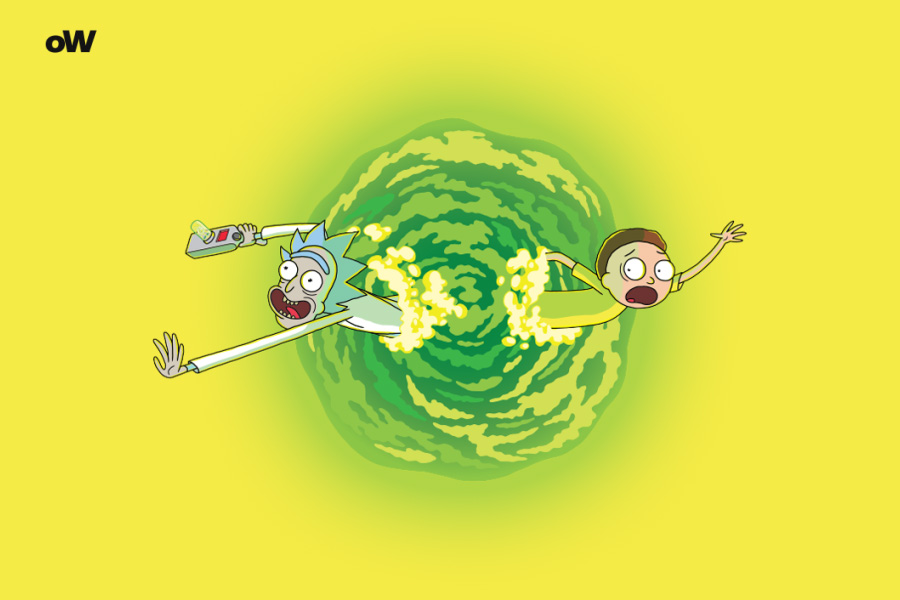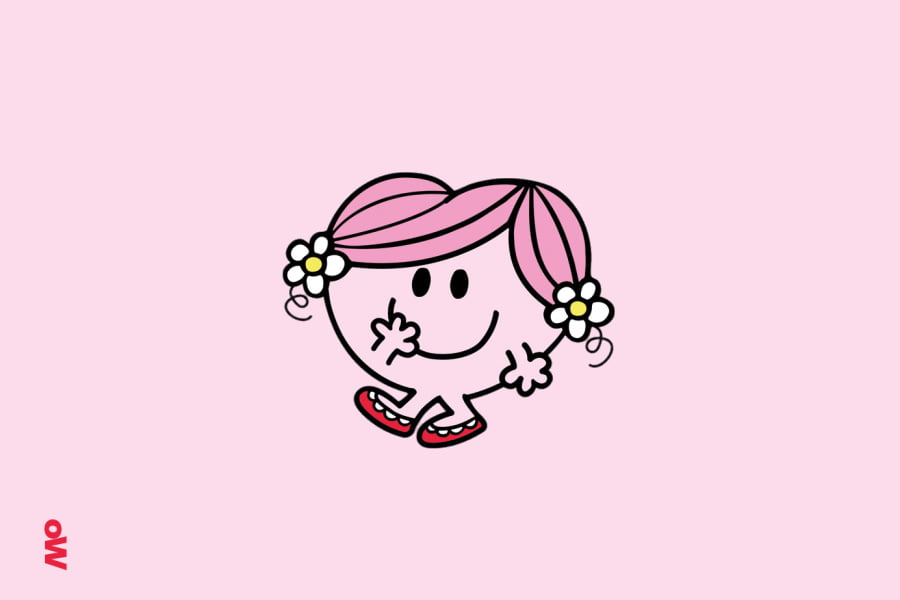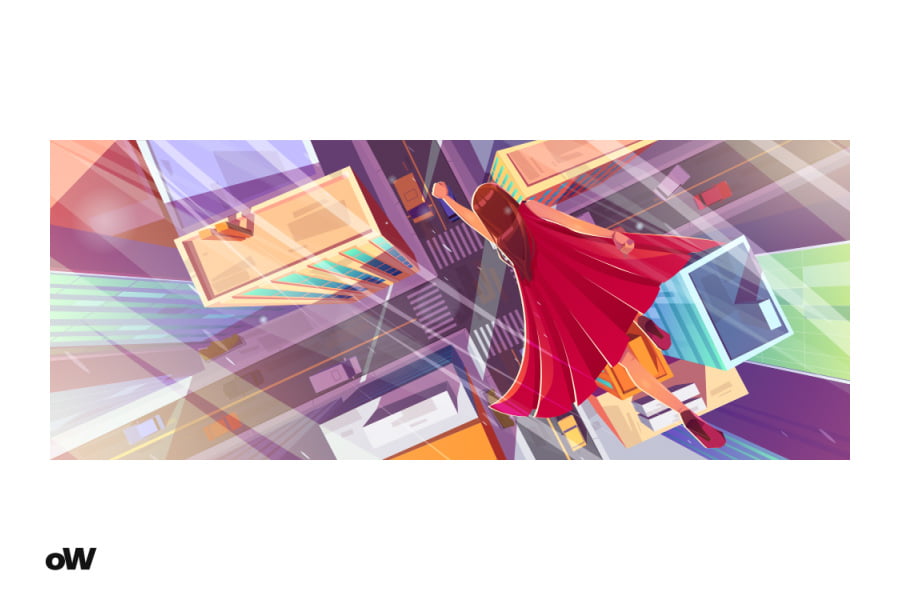Quiz: Which Seinfeld Character Are You?

There’s a theory that every big city dweller is either a Jerry with his eternal skepticism, a George with his phenomenal bad luck, an Elaine with her catastrophic dancing at office parties, or a Kramer who… well, Kramer is just Kramer. And when the idea of a Seinfeld character quiz came up, we realized it was time to figure out why, even 30 years later, we still see ourselves in these characters.
A Brief Look at Seinfeld
Surprisingly, “Seinfeld” wasn’t initially planned as a revolution in the world of sitcoms. NBC ordered the pilot without much enthusiasm, and for the first few seasons, the show teetered on the edge of cancellation. However, gradually, this “show about nothing” transformed into a mirror of American urban life, where everyone could recognize themselves or their acquaintances.
The series broke all existing rules of television storytelling at the time. There was no moral at the end of each episode, characters didn’t become better people over time, and major plotlines could revolve around finding a parking space or waiting for a restaurant table. The creators showed that comedy could arise from the most mundane situations if viewed from the right angle.
Unlike other sitcoms of the time, “Seinfeld” wasn’t afraid to tackle socially awkward topics. Episodes about masturbation (“The Contest”), homophobia (“The Outing”), or even Nazi symbolism (“The Soup Nazi”) became classics not because of their scandalous nature, but due to the creators’ ability to find comedy in taboo subjects.
What the Seinfeld Quiz Reveals About Your Personality
The phenomenon behind the popularity of such quizzes lies in the series’ unique ability to create recognizable character types. Each main character isn’t just a character but a collective image of a certain type of city dweller, complete with their neuroses, quirks, and particular worldview.
Interestingly, the show’s creators drew inspiration from real life. Many plotlines were based on actual events from the writers’ lives. For instance, the famous “Soup Nazi” episode was based on a real soup stand owner in New York, known for his strict approach to customer service.
Meet the Main Characters of Seinfeld
The four main characters aren’t just a collection of comedy roles but a genuine gallery of human personalities, each so precisely written that they seem copied from real people. Their dynamics resemble the character interactions in “Shameless,” where each character also represents a distinct personality type.
Jerry Seinfeld: The Comedy Kingpin
Jerry in the show serves as an anchor of normality around which all chaos revolves. His apartment becomes the gathering spot for the whole group, and his relative rationality offsets the madness of other characters. However, Jerry himself is far from perfect – his pedantic nature and pickiness in relationships turn him into just as much of a neurotic as his friends.
An interesting detail: throughout different episodes, we learn that Jerry breaks up with women for the most trivial reasons. One ate too loudly, another wore the same dress too often, a third had “man hands.” These nitpicks reveal the character’s deep-seated inability to maintain serious relationships, masked by his search for perfection.

George Costanza: The Self-Sabotage Maestro
George Costanza is perhaps the most complex character in the series. Largely based on show co-producer Larry David, George embodies all our worst qualities taken to absurd extremes. His constant lying, manipulations, and attempts to cut corners invariably lead to disasters, but this is exactly what makes him the most human character.
His professional life is particularly interesting. George worked as an architect (pretended to), an importer-exporter (also pretended), and even landed a job with the New York Yankees by pretending to be a baseball expert. His ability to wriggle out of difficult situations only to end up in even more complicated ones became one of the main driving forces of the plot.

Elaine Benes: The Hand-Jive Queen
Elaine Benes breaks all stereotypes about female characters in sitcoms. She’s not just the main character’s friend – she’s a full-fledged character with her own ambitions, problems, and complexes. Her career in publishing, constant boyfriend troubles, and inability to keep her mouth shut create rich material for comedic situations.
Special mention should be made of her famous dance (the “little kicks”) that became a cultural phenomenon. This ridiculous dance, appearing in just one episode, perfectly captured the essence of her character – someone who thinks they’re cooler and more sophisticated than they actually are.

Cosmo Kramer: The Maverick Innovator
Kramer is the embodiment of chaotic energy in a world where everyone else tries to follow the rules. His entrances into Jerry’s apartment are always accompanied by his characteristic sliding entrance, which became as much a trademark of the show as the bass riffs between scenes. His eccentricity is comparable only to characters from “BoJack Horseman.”
The mysterious source of his income (how can he afford to live in Manhattan?), endless stream of crazy business ideas, and ability to accidentally end up in the most incredible situations make him the most surrealistic character in the series. Yet Kramer often turns out to be the most sincere and honest of the group, even if his methods of achieving goals can be quite eccentric.

How Seinfeld Characters Reflect Different Personality Types
The uniqueness of “Seinfeld” lies in its creation of a typology of urban characters. Each main character represents a certain personality type that we regularly encounter in real life.
Jerry epitomizes those people who use humor and sarcasm as a defense mechanism to distance themselves from emotional involvement. His stand-up segments in the show aren’t just a nod to the format but a way to show how humor helps make sense of life’s absurdities.
George is a classic example of someone stuck in a cycle of self-sabotage. His famous theory that doing the opposite of your instincts leads to success (in “The Opposite” episode) actually speaks to a deep understanding of his own problems but an inability to solve them.
Elaine represents the modern urban woman trying to balance career ambitions with personal life. Her constant relationship failures often stem from an inability to compromise and a tendency to over-analyze everything.
Kramer is that friend who lives entirely by their own rules and somehow manages to come out unscathed. His success in the most outlandish ventures (selling The Executive line of jackets, creating beach-scented perfume) shows that sometimes refusing to follow conventional norms can lead to unexpected results.
Interestingly, the show’s secondary characters also became archetypes of their own. Newman embodies the nemesis who’s actually necessary for the main character’s self-definition. George’s parents, Frank and Estelle, represent the classic image of parents whose overprotectiveness and constant arguments shaped their son’s neurotic personality.
Ultimately, the appeal of the “Which Seinfeld Character Are You?” quiz lies not so much in its entertainment value but in the opportunity for self-reflection. Each of us can find a piece of ourselves in each character: Jerry’s perfectionism, George’s paranoia, Elaine’s impulsiveness, or Kramer’s eccentricity.
“Seinfeld” taught us that being imperfect is okay, and the ability to laugh at our own flaws is an important quality for surviving in the modern world. And perhaps the main reason we continue to return to this series and take such quizzes is that it helps us accept our quirks and imperfections, showing that we’re all a little bit Jerry, a little bit George, a little bit Elaine, and a little bit Kramer.
Disclaimer
This quiz is designed for entertainment purposes only. The results are not scientifically validated and do not constitute professional advice or assessment. The quiz results are meant to be fun and should not be used as a basis for any life decisions or as a substitute for professional consultation. If you need personalized guidance, please consult with appropriate qualified professionals.
Questions Overview
- Roll your eyes and make a sarcastic comment.
- Challenge them directly and loudly.
- Angrily mutter under your breath but say nothing.
- Avoid confrontation, but gossip about it later with friends.
- Buy a round of coffee for your friends.
- Invest in a wild and wacky invention.
- Head to the nearest fast food joint.
- Buy a new notebook to write your personal thoughts.
- They're too much effort, but you have them anyway.
- You float from one adventure to the next.
- You're a victim of your own neuroses.
- You're fiercely independent, but sometimes you wish for commitment.
- Make sarcastic hints every time you see them.
- Stage an elaborate scheme to retrieve it.
- Concoct an elaborate lie to avoid confrontation.
- Directly ask for it back with a playful jab.
- The one with average moves who blends in.
- The enthusiastic, wild, and unpredictable dancer.
- The insecure one who tries too hard.
- The one with the infamous "little kicks."
- It's your playground and you love the urban life.
- It's a place filled with unlimited potential and oddball opportunities.
- It's a love-hate relationship – mostly complaints.
- It's where your friends are, and that's what matters.
- Neat, classic, and no-nonsense.
- Eclectic, unique, and a tad unpredictable.
- Practical, with an occasional ill-fated experiment.
- Stylish, but sometimes you fall for unfortunate trends.
- A stand-up comedian, observing the quirks of life.
- Entrepreneur with quirky inventions and ideas.
- Whatever pays with the least amount of effort.
- A position in publishing, with lots of opportunity to voice your opinion.
- With humor and a sarcastic comment.
- Obliviousness and unintentionally making it even weirder.
- Panicking and probably making things worse.
- Asserting yourself, even if it might be awkward.
- Hold court with your witty observations.
- Bring in an odd item or story that steals the show.
- Complain about the food or find something to sulk about.
- Engage in deep (sometimes too deep) conversations with fellow guests.
- Comedies – you love to laugh at life's absurdities.
- Offbeat, quirky films no one's heard of.
- Whatever is relatable to your current life crisis.
- Dramedies – where humor meets real-life scenarios.
- Stay calm, maybe crack a joke when you finally arrive.
- Enter in a flurry, with a wild story about your delay.
- Make an elaborate excuse and hope no one digs too deep.
- Apologize sincerely but wonder if everyone's talking about you.
- It's amusing, and a great source of material.
- You're often unintentionally the source of it.
- You love it, especially if it's about someone else.
- You indulge occasionally, but mostly to bond with friends.
- Cereal, anytime, anywhere.
- Whatever odd concoction you've just dreamt up.
- Fast food, preferably with a lot of guilt attached.
- A big salad. But it has to be a BIG salad.
- The funny, observant one.
- The unpredictable wild card.
- The self-deprecating, often anxious one.
- The bold, opinionated go-getter.






